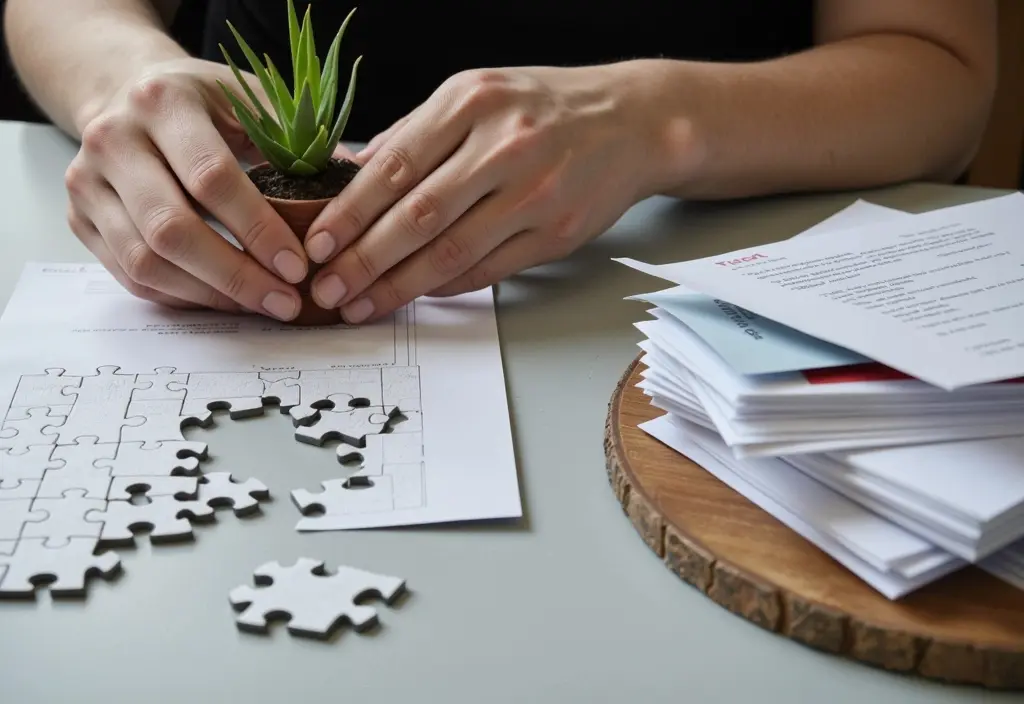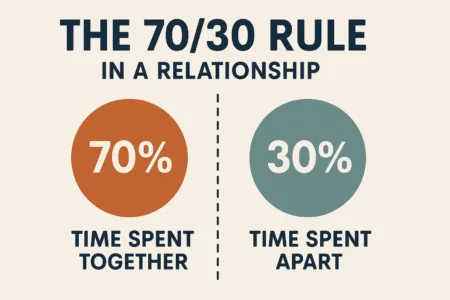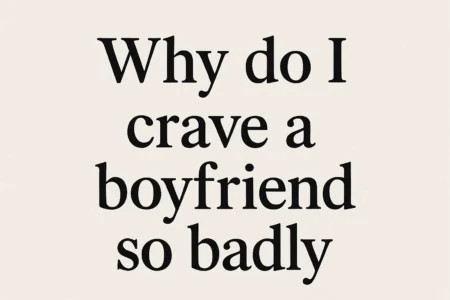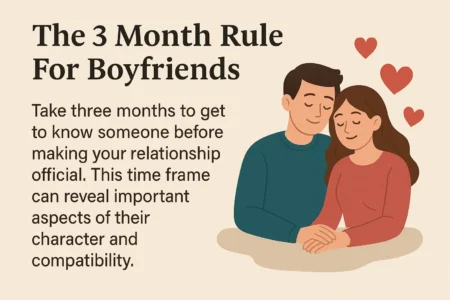That calendar notification pops up. It’s a cheerful little chime that sounds an awful lot like impending doom. “Jessica’s Pottery Painting Party, 7 PM Saturday.” Your stomach plummets. You remember saying yes to this weeks ago, caught up in a moment of social energy that has long since vanished. Now, the thought of spending three hours painting a ceramic gnome after a monster of a work week feels less like fun and more like a special kind of torture. You find yourself frantically scrolling through a mental Rolodex of excuses to get out of something, but every single one feels flimsy, see-through, or just plain mean.
We’ve all been there. That tight knot of anxiety twisting in your chest when an invitation comes through that you just don’t have the energy, time, or straight-up desire to accept. The guilt is real. The fear of letting a friend down, offending a coworker, or getting slapped with the “flaky” label can feel like too much. So, what do we do? We say “yes” through a gritted smile, only to resent the commitment the second it leaves our lips. But what if there was another way?
What if you could say no without feeling like the bad guy? It is absolutely possible to protect your peace and preserve your relationships all at once. This isn’t about locking yourself away from the world; it’s about learning the art of a polite, firm refusal. It’s a skill. And like any skill, it can be learned, practiced, and perfected.
More in Connection & Dating Category
Key Takeaways
- Your well-being has to come first. Saying no isn’t selfish. It’s a necessary act of self-care to keep yourself from burning out and feeling resentful.
- Honesty, delivered kindly, is almost always the best move. A simple, direct “no” gets more respect than a complicated, unbelievable story.
- How you say it matters more than what you say. A warm, appreciative tone can make almost any refusal land smoothly.
- Offer a different plan (if you actually want to). Suggesting another time or way to connect shows you value the person, just not this specific plan.
- It gets easier with practice. The more you confidently set your boundaries, the less scary it will feel.
Why Is It So Hard to Just Say No?
If saying “no” were easy, this article wouldn’t need to exist. The word itself is simple. One syllable. But it’s tangled up in a lifetime of emotional conditioning. So many of us, especially women, are taught from day one to be agreeable, to be helpers, to keep things pleasant. The deep-seated human desire to be liked is a powerful force, and we mistakenly believe that saying “yes” all the time makes us a good friend, a good employee, or a good daughter.
This need to please is wired deep. We’re terrified of what might happen if we say no. Will they stop inviting me out? Will my boss think I’m not committed? Does my friend think I don’t care? These fears shove us into plans that drain our social batteries, our bank accounts, and our precious time off.
And then there’s FOMO, the fear of missing out. It’s a modern-day plague. We see perfectly curated highlight reels on social media and feel a jolt of anxiety. If we stay home, we might miss an inside joke, a career-making connection, or a legendary story. So we pack our schedules, stretching ourselves so thin that our social life starts to feel less like a joy and more like a job. The first step to breaking this cycle is admitting that your time and energy are not infinite. You get to choose how you spend them.
Is a “Little White Lie” Ever Okay?
Look, let’s be real. We’ve all done it. We’ve suddenly developed a headache, blamed a “sick” cat that was perfectly fine, or invented a “family dinner” to get out of a plan. The white lie is a classic social tool, often used to soften the sting of rejection. But is it the best choice?
How Do You Weigh Honesty vs. Sparing Someone’s Feelings?
There’s no easy answer here. It’s all about context and the relationship you have with the person. Telling a harmless fib to a pushy salesperson you’ll never see again is one thing. But creating a pattern of dishonesty with people you care about? That’s a fast track to a broken relationship. Lies have a way of coming out, and even the small ones can completely destroy trust. Besides, keeping all your stories straight is often more work than just going to the event would have been.
A good rule of thumb is to think about the stakes. If your friend is asking for help moving, faking a sudden 24-hour flu is going to cause a lot more damage than saying, “Oh man, I’m so sorry, but I can’t do any heavy lifting this weekend. How about I help you unpack or bring over a massive pizza once the truck is empty?” One path is honest and still helpful; the other makes you look untrustworthy. Nine times out of ten, a kind, tactful truth is better than a lie.
What Are Some Go-To Excuses That Actually Work?
Alright, but sometimes you just need a quick, simple out. You don’t have it in you for a big, honest conversation about your current state of overwhelm. You just need a polite reason to say no and move on. For those moments, having a few reliable, low-drama excuses ready to go is a lifesaver.
Need a Reason to Skip That Last-Minute Invite?
Last-minute plans are the easiest to turn down because no one reasonably expects you to be completely free. You don’t need a five-act play explaining your absence. Short and sweet is the way to go.
A simple, “Oh, that sounds like so much fun! I wish I could, but I’m already tied up tonight,” is perfect. Notice the lack of detail. “Tied up” could mean you’re at a wedding, or it could mean you’re in your pajamas watching Netflix. They don’t need to know which.
Other solid options:
- “Thanks for thinking of me, but I have to pass. The week completely wiped me out.” It’s honest, everyone can relate to it, and it clearly says you need to recharge.
- “I’d love to another time, but I have a super early start tomorrow.” This is a universally understood reason to call it a night.
- “I’ve got some personal stuff I need to deal with tonight.” It’s vague but final. It politely signals that your time is not available.
The trick is to keep it simple and sound genuinely disappointed you have to miss out. Your tone is everything.
How Can I Get Out of a Work Event Without Looking Bad?
Work-related social functions are a minefield. You want to seem like part of the team, but the phrase “mandatory fun” exists for a reason. Going to every single happy hour, team-building escape room, or holiday party just isn’t always possible.
I learned this lesson a few years back. My old department had a standing “drinks every Friday” tradition. For months, I forced myself to go, even when I was exhausted. I thought I had to show face. Then one Friday, after a hellish week of deadlines, I just couldn’t. My social battery wasn’t just low; it was completely gone. When my manager came by to gather everyone, I took a breath and said, “I’m going to head home and recharge so I can be 100% on Monday. You guys have a drink for me!” He just smiled and said, “Smart move. See you Monday.”
It was a lightbulb moment. No one was mad. My career didn’t tank. I realized that framing my “no” in a way that reinforced my commitment to my actual job was the perfect out. You can say no while still showing you’re dedicated. Phrases like, “I have a prior commitment I can’t get out of,” or “Thanks so much for putting this together, but I won’t be able to join this time,” are perfect. You don’t owe your coworkers your life story.
What If It’s a High-Pressure Social Situation, Like an MLM Party?
Oh, the dreaded “party” that’s really just a sales pitch in disguise. A friend from my old neighborhood once invited me to what she called a “fun girls’ night with wine and snacks.” I showed up expecting a casual hangout and was instead greeted by a wall of essential oils and a woman in a blazer ready to tell me how to become my own boss. It was a classic multi-level marketing ambush.
The pressure was suffocating. I felt trapped as everyone started buying starter kits they couldn’t afford. I knew I wanted no part of it. During a quick break, I pulled my friend aside and said, “Hey, I am so sorry, but I have to duck out. I completely forgot I have to pick up a prescription before the pharmacy closes.” It was a lie, and one I had planned in advance. I decided before I even walked in the door that I needed an exit strategy.
In situations like that, having a firm, polite, non-negotiable reason for leaving is your best defense. You don’t need to explain why you aren’t buying anything. Your only focus is on the fact that you need to leave. “I have another appointment I need to get to,” or “I have to get home to take a call,” are perfectly fine ways to get yourself out the door.
How Do I Say No Without Using an Excuse at All?
This is the expert level. The black belt of boundary setting. It means ditching the excuses entirely and embracing communication that is direct, honest, and kind. It means being confident enough to state your needs without feeling like you have to invent a reason for them. It’s terrifying at first, but it is so incredibly freeing.
What’s the “No Sandwich” and How Do I Use It?
The “No Sandwich” is a fantastic, simple trick for delivering a refusal that almost always lands softly. You literally sandwich your “no” between two positive, appreciative statements.
- Top Bun (The Positive): Start with something warm and genuine. “Thank you so much for the invitation! A weekend camping trip sounds absolutely incredible.”
- The Filling (The “No”): State your refusal clearly and without apology. “Unfortunately, I won’t be able to make it.”
- Bottom Bun (The Positive): End on another positive note. “I know you’re all going to have an amazing time, and I want to see all the pictures!”
This method is so effective because it leads with warmth, states the boundary clearly, and ends on a note of connection. It tells the other person “I value you,” even if you can’t accept this specific plan. It’s a game-changer.
Can I Just Be Direct and Honest?
Yes. In fact, with people you trust, it’s the kindest way. Real friends will get it. Family who loves you will respect that you need a break. Being direct isn’t the same as being rude. It just means speaking from your perspective using “I” statements.
Instead of a blunt, “I don’t want to go to your party,” which sounds like a judgment, frame it around your own needs. “I’ve had such a crazy week, and what I really need is a quiet night at home to feel human again.” See the difference? It’s not about their event; it’s about your well-being. No one who cares about you can argue with that. Being vulnerable enough to say, “I just don’t have the social energy for that right now,” can actually make your relationships stronger.
What Happens When I Have to Cancel Plans I Already Made?
This is the big one. Backing out of something you already agreed to carries a much heavier load of guilt. You’re not just saying no; you’re actively changing a plan. Handling this requires grace and a lot of respect for the other person’s time.
How Can I Back Out Gracefully Without Ruining a Friendship?
A few years ago, my best friend was having her baby shower. I was thrilled for her, and I had RSVP’d “yes” the second the invitation arrived. But the week of the party, a personal crisis hit me like a ton of bricks. I was an emotional mess. The thought of having to be “on” in a room full of people, making cheerful small talk, felt like an impossible task. I knew I wouldn’t be good company and would probably just end up crying in a corner.
The guilt was eating me alive. But finally, I realized that forcing myself to go would be a disservice to both of us. She deserved to be surrounded by joy, and I just didn’t have any to give. So I picked up the phone—this is a phone call, not a text. I called and explained, without getting into all the gory details, that I was going through something really difficult and just wasn’t emotionally capable of being at a party. I told her how incredibly sorry I was and how much it sucked that I was going to miss it.
Before I even made the call, I had already gone online, ordered a big gift from her registry, and had it shipped to her house. And on the phone, I made a concrete plan to take her out for a quiet lunch the very next week to celebrate one-on-one. She couldn’t have been more understanding. Our friendship was strong enough to handle a moment of real life.
The formula is simple:
- Act Fast: Tell them as soon as you know. The more notice, the better.
- Be Sincere: Give a genuine, heartfelt apology.
- Be Responsible: Don’t ghost them or make them chase you for an answer.
- Make Amends: If you can, offer a clear, alternative plan to show you still care.
How Can I Practice Setting Boundaries for the Future?
Saying no isn’t just about finding the right excuse in the moment. It’s one piece of a much bigger puzzle: setting healthy boundaries. Think of boundaries as the invisible lines we draw around ourselves that protect our mental, emotional, and physical health.
Aren’t Boundaries Just a Selfish Way of Saying No?
Not at all. In fact, having healthy boundaries is one of the most generous things you can do for your relationships. Think about it. When you constantly say “yes” to things you secretly want to say “no” to, you start to feel resentful. That resentment acts like a poison, slowly souring your interactions and chipping away at the relationship.
Setting boundaries is just being honest about your own capacity. It’s letting people know what you are and are not available for. This clarity prevents so much misunderstanding and burnout. As the University of California, Berkeley’s Health Services explains, clear boundaries are essential for healthy relationships and managing stress. They aren’t walls you build to keep people out. They are fences that let you open the gate and invite people in, in a way that you can sustain. When you honor your own limits, you can show up as a better, more present version of yourself for everyone in your life.
What Are Some Phrases to Keep in My Back Pocket?
Sometimes, the problem is that your brain just short-circuits in the moment. Someone puts you on the spot, and a panicked “Yes, of course!” flies out of your mouth before you can even think. Having a few pre-set phrases in your mind can give you the pause you need to respond thoughtfully instead of automatically.
Here are some powerful phrases that create breathing room:
- “Let me check my calendar and I’ll get right back to you.” This is your best friend. It gives you the space to actually decide if you want to say yes, without pressure.
- “I really appreciate you thinking of me, but my plate is completely full right now.” A polite and professional way to say you’re at your limit.
- “I’m trying to be really intentional with my time right now, so I’m going to have to pass.” This shows you’re not being flaky; you’re being deliberate.
- “That sounds like a great time, but I can’t add one more thing to my schedule at the moment.”
- “No, thank you.” Don’t forget the power of simplicity. It can feel harsh, but when said with a kind smile, it’s perfectly polite and crystal clear.
Your “No” Is a Gift to Yourself
Learning to say no is a process. It will feel awkward at first. You’ll still feel that twinge of guilt. But with every polite “no,” you are casting a vote for your own well-being. You are teaching yourself, and the people around you, that your time is valuable, your energy is a finite resource, and your peace of mind matters.
The goal isn’t to reject every invitation and live like a hermit. The goal is to build a life where your “yes” is a full-throated, enthusiastic choice—not a reluctant obligation. When you say “no” to the things that drain you, you create the space to say a huge, joyful “yes” to the things that truly light you up. And that is a beautiful, powerful way to live.
FAQ – Excuses to Get Out of Something

What are some phrases I can use to buy myself time when deciding to accept or decline plans?
Some useful phrases include, ‘Let me check my calendar and get back to you,’ or, ‘I appreciate the invite, but I need to think about it.’ These give you space to consider your response without feeling pressured.
How can I practice setting healthy boundaries for future situations?
Practice setting healthy boundaries by clearly identifying your limits, using predefined phrases for common scenarios, and gradually increasing your confidence in saying no. Remember, boundaries are about honest communication that protects your well-being and improves your relationships.
Is it okay to tell a small lie to avoid uncomfortable social situations?
While small white lies can sometimes prevent awkwardness, they can also risk damaging trust if discovered. It’s generally better to use polite, general excuses or honest statements that emphasize your need for self-care or prior commitments to maintain integrity and goodwill.
What are effective ways to say no at work without damaging relationships?
At work, you can say no by framing your refusal around your priorities, such as mentioning you’re committed to current projects or need to focus on deadlines. Using polite, professional language like, ‘I appreciate the invitation, but I have prior commitments,’ helps maintain good rapport while setting boundaries.
How can I politely decline invitations without feeling guilty?
To politely decline invitations, acknowledge the invite with appreciation, give a simple, honest reason or use a general excuse, and express genuine regret that you can’t join. Maintaining a warm and friendly tone helps the refusal land smoothly and preserves the relationship.




